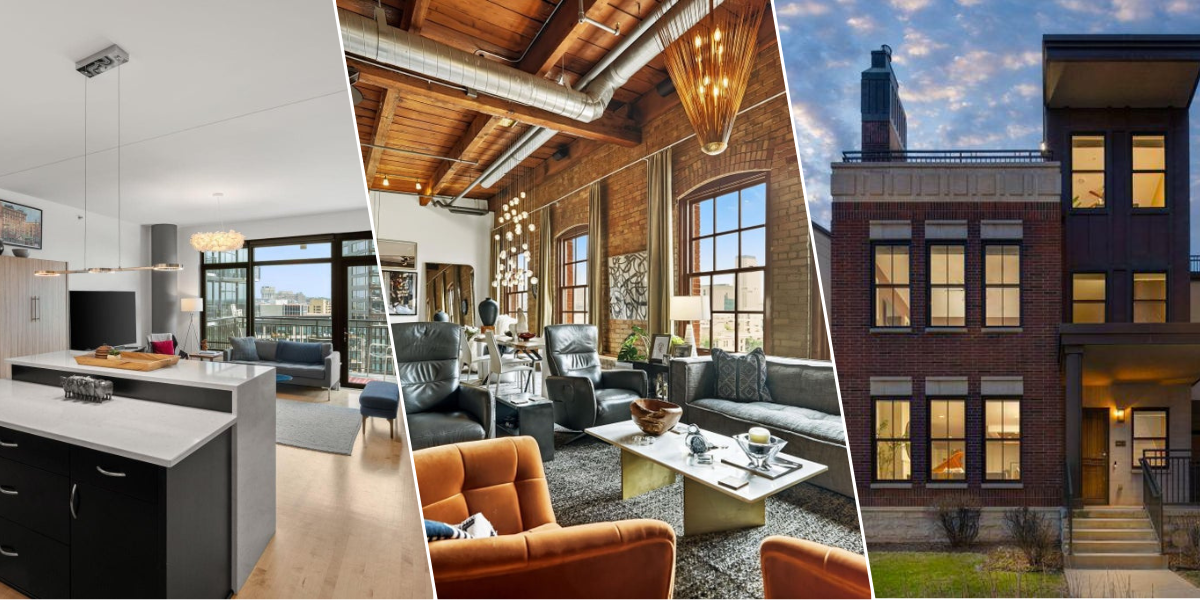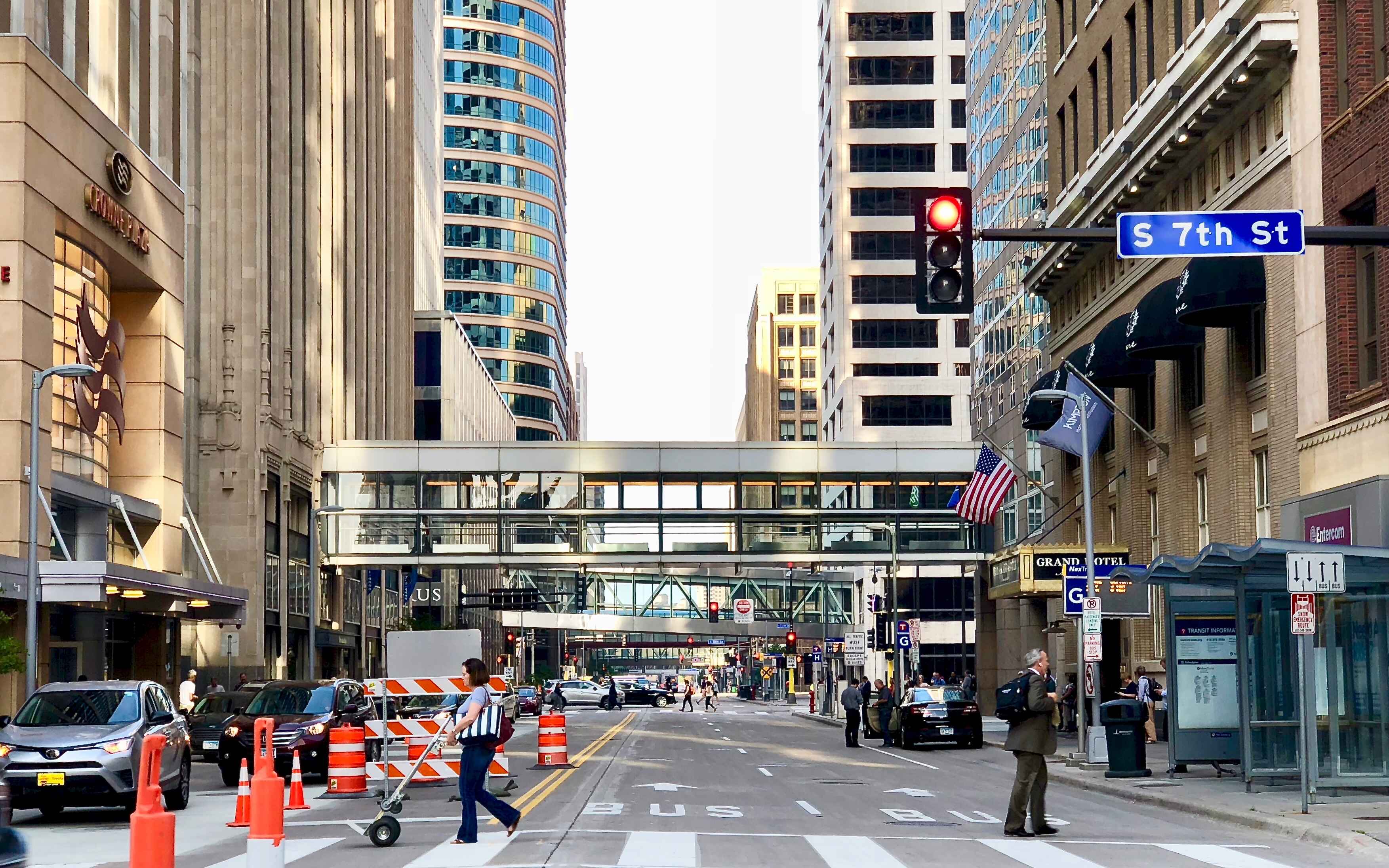Complete Guide to Buying Your First Condo
Buying your first condo downtown is easier when you know the steps. Set your budget, get a lender who knows condos, learn how HOAs work, tour with a sharp eye, and write a smart offer. I'll help you avoid rookie mistakes and make your move with confidence.
-
PICTURE YOUR DOWNTOWN LIFE
-
NAIL YOUR NUMBERS
-
UNDERSTAND TODAY'S COMMISSION RULES
-
CONDOS VS. LOFTS VS. TOWNHOMES
-
LEARN THE HOA BASICS (AND THE BIG QUESTIONS TO ASK)
-
SET UP A SMART SEARCH AND TOURS
-
TOUR LIKE A PRO
-
WRITE THE RIGHT OFFER
-
INSPECTION AND HOA DOCUMENT REVIEW
-
APPRAISAL AND FINANCING
-
CLOSE AND GET YOUR KEYS
-
SETTLE IN AND LOVE YOUR CITY
Step 1: Picture Your Downtown Life
Start with how you want to live, not just where you want to live. Do you want morning walks along the river or to be steps from coffee and the ballpark? Do you need a quiet building or prefer energy and nightlife? List your must-haves and nice-to-haves. Keep it short.
Quick neighborhood vibes:
- North Loop: Warehouses turned lofts, restaurants, boutiques, easy to love.
- Mill District / Downtown East: Riverfront, parks, newer buildings, stadium action.
- Loring Park: Green space, artsy, classic condo towers, calmer streets.
- Downtown West / Skyway Core: Walk to work, skyway convenience, high-rise living.
Step 2: Nail Your Numbers
Know your full monthly picture before you tour.
- Principal and interest from your pre-approval
- HOA dues and what they cover
- Property taxes and any homestead savings after you file with the county
- Condo insurance for your unit (the building carries a master policy)
- Parking, utilities, and Internet
Choose a lender who understands condo financing and can explain warrantable vs. non-warrantable buildings in plain language. Ask about first-time buyer programs. Get a written pre-approval so you're ready when you find the right place.
Reach out to Allison Larson and the Guild Mortgage team. They're pros at helping first-time buyers navigate condo financing and will make sure you understand every step before you start touring.
Step 3: Understand Today's Commission Rules
Real estate commissions had a major shake-up in 2024. For years, sellers typically covered both their own agent's fee and the buyer's agent's fee, usually a 6% split. That setup isn't automatic anymore.
Today, commissions are fully negotiable, and how they're handled depends on the agreement between you, your agent, and the seller. Before you start touring, we'll talk through what that looks like so you're clear on how representation works and what your options are.
The good news? This change gives you more transparency and control in the process.
Take a look at my blog "What the New Commission Rules Mean for You" to get more info.
Step 4: Condos vs. Lofts vs. Townhomes

Here's how to think about the main downtown options:
- Condos: One building, shared walls, shared amenities, monthly HOA. Great for lock-and-leave living.
- Lofts: Often historic conversions with character and tall ceilings. Check sound and storage.
- Townhomes: Private entry, often multi-level with attached garage, but still managed by an HOA.
Match the style to your daily life and your tolerance for stairs, storage, and sound.
Step 5: Learn the HOA Basics (and the Big Questions to Ask)
Your HOA is your maintenance team, rulebook, and rainy-day fund. You should know:
- What dues cover: heat, water, trash, Internet, amenities
- Reserves: Is the savings fund healthy for the building's age?
- Rules: Pet policy, rental caps, short-term rentals, balcony use, floor coverings
- Projects: Any big repairs planned and how they'll be funded
- Insurance: Building's master policy vs. your own HO-6 policy
- Management: Responsive, professional, and transparent
If you're thinking, "This sounds like a lot," it is. I'll help you review the docs in plain English so nothing catches you off guard later.
Step 6: Set Up a Smart Search and Tours
We'll create a search based on your budget, fees, and must-haves. Think: in-unit washer/dryer, heated parking, dog-friendly, rental cap open. Then we'll stack showings by building and block so you can compare apples to apples.
Bring this to tours:
Step 7: Tour Like a Pro
Don't just admire the kitchen. Test the living.
- Sound: Stand still and listen. Run water. Check hallway noise.
- Light: Morning vs. evening light. Window orientation.
- Air and heat: How the system works, filter location, service records.
- Water: Pressure and hot water recovery.
- Storage: Closets, pantry, storage locker size and location.
- Parking: Actual stall, clearance, and ease during winter.
- Logistics: Package room, elevator count, move-in rules, guest parking, bike storage.
- Connectivity: Cell service and Internet options.
If you love a unit, go back at a different time of day. It's worth it.
Step 8: Write the Right Offer
Your price strategy depends on comps, days on market, and the building's momentum. Downtown is its own ecosystem, and each building has quirks, histories, and patterns that don't always show up in listing data. That's where having an agent who knows the landscape really matters.
Some buildings move fast and sell at full price. Others might sit longer because of higher dues or upcoming projects. I'll help you read those signals so your offer hits the sweet spot: competitive but smart.
Here's what we'll cover together:
- Price and terms that fit your goals
- Earnest money and timeline
- Inspection and financing contingencies
- Seller-paid closing costs where it helps your monthly
I'll negotiate hard and keep you informed throughout the entire process. It pays to have someone in your corner who's spent years studying the buildings, boards, and buyer behavior unique to downtown Minneapolis.
Step 9: Inspection and HOA Document Review
You'll do a condo inspection focused on the unit, plus a careful review of the HOA docs. Look for:
- Clear budgets and reserves
- Meeting minutes that match the story you heard
- Any lawsuits or special assessments
- Upcoming building projects
- Rules that could affect your plans
Red flags don't always mean "walk." They mean "ask better questions."
Step 10: Appraisal and Financing
Once your offer is accepted, your lender will order an appraisal to confirm the home’s value and ensure the building meets the loan requirements. For condos, that means the appraiser looks not only at your unit but also at the building’s financial health, things like owner-occupancy rates, reserves, and any ongoing special assessments. If the appraised value matches or exceeds the purchase price, you move forward. If it comes in lower, don’t panic. We have options.
We can negotiate with the seller to adjust the price, request a review of the appraisal, or look at alternative financing paths. During this stage, communication between you, your lender, and me is everything. I’ll stay in close touch with the lender and appraiser so we can move quickly and keep your closing on track.
Step 11: Close and Get Your Keys

Before closing, you'll do a final walk-through, set up utilities, file for homestead after you move in, and schedule your elevator time slot. Moves go smoother when you follow the building's schedule. I'll share a downtown-tested moving checklist to help.
Step 12: Settle In and Love Your City
Meet the front desk or building manager. Learn your trash and recycling days. Find your new coffee spot, grocery, and dog route. Sign up for our newsletter so you never miss local tips, listings, and events. I can connect you to a contractor, brunch spot, or second opinion. I'm here long after closing.
What's Unique About Buying Downtown in Minneapolis
- Skyway access: Some buildings connect, some don't. It's a winter win if you want it.
- Parking matters: Heated, deeded, well-placed stalls are gold. So is guest parking.
- Amenity trade-offs: Pools, gyms, and concierge are great but can raise dues.
- Historic vs. new: Brick-and-beam charm vs. modern systems, both have perks.
- Event nights: Target Field and U.S. Bank Stadium bring energy and traffic. Plan your route home.
First-Timer Condo Buyer FAQs
How much are HOA dues for a condo in Downtown Minneapolis?
Homeowners association (HOA) dues in Downtown Minneapolis condos usually range from a few hundred to over a thousand dollars per month, depending on the building, unit size, and amenities. Some buildings include heat, water, trash, or Internet in the monthly fee, which can make a slightly higher HOA still cost-effective. Before buying, I'll help you compare what's covered so you understand your true monthly cost.
What is a special assessment in a condo?
A special assessment is a one-time fee that condo owners pay when a major repair or improvement is needed and the HOA's reserve fund doesn't cover the cost. This might happen for projects like roof replacements, elevator updates, or exterior work. Before you buy, we'll review the HOA's financials and meeting notes to see if any assessments are planned or likely.
Can you rent out your condo in Downtown Minneapolis?
In many buildings, you can rent your condo, but most have rental caps or waiting lists that limit how many units can be leased at one time. These rules help maintain a balance between owners and renters. If renting your unit later is important to you, I'll help you find buildings that allow more flexibility and confirm all rental policies before you buy.
Is buying a condo a good choice for a first-time homebuyer?
Buying a condo can be an excellent first step toward homeownership, especially if you value location, convenience, and low maintenance. Condos offer shared upkeep and amenities like gyms or rooftop patios, so you spend less time on maintenance and more time enjoying the city. It's a smart way to build equity while living in a neighborhood you love.
How long does it take to buy a condo in Downtown Minneapolis?
From the time your offer is accepted, it usually takes about 30 to 45 days to close on a condo. That window covers inspection, appraisal, financing, and final paperwork. Getting pre-approved and gathering your financial documents early can make the process faster and smoother.
Avoid These Five Rookie Mistakes
- Ignoring HOA rules until after you write an offer.
- Picking a lender who doesn't specialize in condos.
- Skipping a second showing at a different time of day.
- Working with a realtor who doesn't fully understand the condo market landscape
- Forgetting about parking, storage, and move-in logistics.
Your Next Move
Buying your first condo takes time, and it’s completely normal if you’re not ready to make a move yet. You might be exploring neighborhoods, setting a budget, or just trying to learn how condo ownership works. Wherever you are in the process, I can help you make sense of it. Let’s start with a First-Time Condo Game Plan.
We’ll have a short conversation about your goals, your budget, and what you’re looking for downtown. There’s no pressure and no commitment, just a chance to get clear on your next steps. I’ll walk you through what to expect, how representation works, and what makes each neighborhood unique so you can move forward with confidence.
You don’t have to figure this out on your own. You deserve a guide who knows every building, every block, and what life in downtown Minneapolis really feels like. My job is to make your first home search simple, strategic, and enjoyable.
Find 15 minutes on my calendar here.
Joe Grunnet
Broker | DRG | Condo Expert
700 Washington Ave N, Ste 101






Leave A Comment